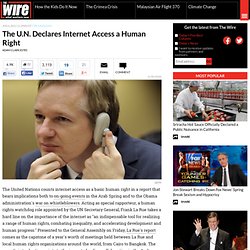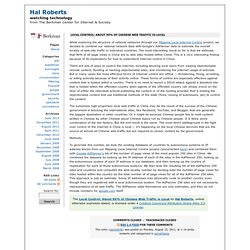

Evgeny on Internet in Society: Empowering or Censoring Citizens? G8 on FREEDOM AND DEMOCRACY. {*style:<b>G8 DECLARATION RENEWED COMMITMENT FOR FREEDOM AND DEMOCRACY </b>*} 1. We, the Leaders of the Group of Eight, met in Deauville on 26 and 27 May 2011. In this period of change, we reaffirmed our profound commitment to the values of freedom and democracy, and their universality. 2. 3. 4. 5. 6. 7. 8. 9. 10. 11. 12. 1. 2. 3. 4. 5. 6. 7. 8. 9. 10. 11. 12. 13. 14. 15. 16. 17. 18. 19. 20. 21. 22. 23. Europe has adopted a broad package of measures to deal with the sovereign debt crisis faced by a few countries, and it will continue to address the situation with determination and to pursue rigorous fiscal consolidation alongside structural reforms to support growth.
We are determined to take the necessary actions collectively and individually to face current challenges. Googleopoly: The Definitive Guide To Antitrust Investigations Against Google. We’re another step closer to the US Federal Trade Commission launching an expected antitrust investigation of Google.

If it does, the FTC will join the EU and Texas in doing broad investigations. But Google’s been examined for antitrust issues many times before this and mostly come through OK. Here’s our comprehensive guide to Google and antitrust actions, over the years. December 2007: FTC Approves Google Purchase Of DoubleClick Perhaps Google’s first real antitrust challenge, it had to fight for approval to purchase DoubleClick. Nov. 2008: DOJ Helps Kill Google-Yahoo Search Deal In November 2008, Google pulled out of a proposed deal to power Yahoo’s search results, over fears that the US Department Of Justice would file a monopoly suit against the company, if it went ahead.
Outcome? There’s no particular evidence that the deal has somehow made search ads at Google cheaper, which isn’t surprising. There’s also no particular evidence that the deal has helped Yahoo. More, More, More! UN: Internet = HR. The United Nations counts internet access as a basic human right in a report that bears implications both to on-going events in the Arab Spring and to the Obama administration's war on whistleblowers.

Acting as special rapporteur, a human rights watchdog role appointed by the UN Secretary General, Frank La Rue takes a hard line on the importance of the internet as "an indispensable tool for realizing a range of human rights, combating inequality, and accelerating development and human progress. " Presented to the General Assembly on Friday, La Rue's report comes as the capstone of a year's worth of meetings held between La Rue and local human rights organizations around the world, from Cairo to Bangkok. The report's introduction points to the impact of online collaboration in the Arab Spring and says that "facilitating access to the Internet for all individuals, with as little restriction to online content as possible, should be a priority for all States.
" Official Report. U.N. Report Declares Internet Access a Human Right. Dissent in China: Of development and dictators. 95% of Chinese Web Traffic is Local. While exploring the structure of national networks through our Mapping Local Internet Control project, we decided to combine our national network data with Google’s AdPlanner data to estimate the overall locality of web site traffic in individual countries.

The most interesting result so far is that we estimate that 96% of all page views in China are to web sites hosted within China. This is a very interesting finding because of its implications for how to understand Internet control in China. There are lots of ways to control the Internet, including blocking local users from viewing objectionable remote content, flooding or hacking objectionable sites, and monitoring the Internet usage of activists.
But in many cases the most effective forms of Internet control are offline — threatening, fining, arresting, or killing activists because of their activity online. These forms of control are especially effective against content that is hosted within a country. Methods: